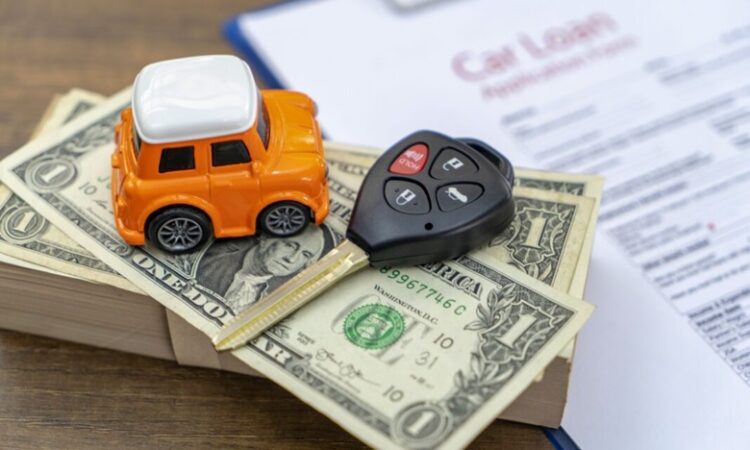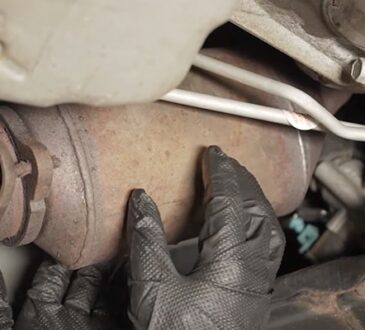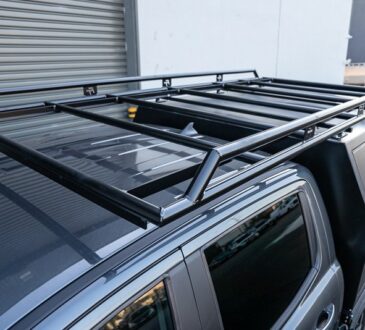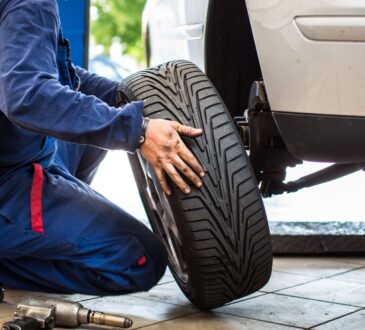
Introduction
Hello everyone! My name is John, and I’m here to share in-depth information about pawning your car to access cash when you need it most. While pawning may seem like a last resort for some, there are responsible ways to leverage the value of your car without losing ownership entirely.
In this article, I’ll walk you through the step-by-step process of applying for a car pawn loan, summarize key factors to consider, and provide guidance on negotiating the best agreement. My goal is to empower you with knowledge so you can make confident decisions that are right for your situation. Let’s dive in!
Basic Information About Pawning Your Car
Car pawn loans, also known as title loans, allow you to borrow money using your paid-off vehicle as collateral, preserving ownership while accessing short-term cash. Instead of selling your car immediately when funds are limited, pawning keeps you as the owner while providing capital in the short term.
The basic process involves depositing your car and title with the pawn shop in exchange for a loan. Typically, this loan amount ranges from 25-50% of the car’s value. Interest accrues daily until you repay the principal plus fees within an agreed-upon timeframe, usually 30 days. Failure to repay results in the pawn shop retaining your car.
While car pawn loans often carry high interest rates, they offer quick access to cash without credit checks. As long as you repay on time, you can avoid losing your means of transportation. This flexibility makes pawning feasible for unexpected bills or emergencies. With responsible use, car pawn loans can bridge temporary financial gaps at a lower cost than payday loans or overdraft fees. However, it’s crucial to borrow only what you can reliably repay to avoid complications. Let’s review the essential steps involved.
Car Pawn Loan Process
- Find a reputable pawn shop: Research multiple shops in your area to compare prices and terms. Check online reviews for each shop’s reputation regarding ethics and legal compliance. Trustworthy lenders are key to a smooth experience.
- Gather necessary documents: You’ll need your driver’s license, vehicle registration, proof of insurance, and title, with no outstanding liens. The pawn shop will verify legal ownership and absence of encumbrances before proceeding.
- Receive a valuation: The lender will assess your car’s condition and reference the Blue Book value, considering factors like mileage, condition, and features. They’ll then offer a loan percentage, typically 25-50% of the car’s value.
- Review loan disclosures: Examine the interest rate, associated fees, and repayment terms carefully. Ask questions for clarity before signing anything. Transparent lenders provide upfront, detailed information.
- Complete necessary paperwork: Typically, you’ll fill out a pawn ticket detailing your car’s specifics and loan conditions, including permission to drive during the loan period if applicable. Keep copies for your records.
- Collect loan funds: Once all documents are clear, you’ll receive the approved loan amount minus origination fees, usually $25-75. The pawn shop will hold your title and keys until repayment.
- Manage repayment: Set up reminders to pay before the due date and avoid additional fees. Full repayment reclaims your car and clears the title. Partial payments may extend the deadline but increase overall costs.
The entire process typically takes 30-60 minutes, with thorough preparation and attention to detail. Car pawn loans offer swift cash access when traditional options fall short. To ensure a positive experience, weigh the following factors carefully before proceeding.
Key Factors to Consider When Pawning Your Car
- Assess your needs and limitations carefully: Car pawn loans are intended for short-term financial emergencies, not prolonged budget shortfalls. Borrow only what you’re confident you can repay promptly.
- Interest rates: APRs often exceed 100% due to the short-term nature of these loans. Avoid extending repayment longer than necessary to minimize interest costs.
- Access while driving: Confirm whether the lender permits limited driving privileges. Restrictions may impact your ability to commute if transportation is essential. Additional insurance coverage may be required.
- Title status: A car with no outstanding debts fetches the highest loan amounts and simplifies the pawn process. Pay off any outstanding loans before pawning if possible to streamline the process.
- Vehicle condition: Older cars with high mileage or significant wear may qualify for smaller loans due to potential resale depreciation. Factor this into your decision-making process.
- Explore alternative options: Investigate lower-interest alternatives through community programs, credit unions, or trusted personal loans from family/friends before committing to a car pawn loan.
Taking time to assess your needs and limitations directly guides responsible use of car pawn loans. Early intervention can address financial challenges without long-term repercussions.
Negotiating the best possible pawn agreement
Similar to buying a used car, negotiating the terms of a car pawn loan can help reduce costs and improve conditions. Proven advice includes:
- Shop from multiple dealerships: Get loan estimates in writing from 3-5 dealerships to compare prices, fees, and the dollar amount offered.
- Highlight vehicle benefits: Mention the latest services, low mileage, and various features to increase the percentage of the assessed value received.
- Inquire about discounts: Ask if there are discounts for repeat customers, referrals, or early repayment of existing pawned credit without extending the deadline.
- Request minor fee waivers: Sometimes, minor fees for processing, storage, or other small charges may be waived, especially for loyal customers. It doesn’t hurt to ask politely.
- Seek lower rates: If possible, propose a counteroffer under slightly lower APRs. Lenders deal in volume, and sometimes they push good customers.
- Seek extended deadlines: Request an additional week for repayment to spread expenses further if it fits within the criteria.
- Maintain politeness but assertiveness: Diplomatically yield positive results while retaining respect, positivity, and willingness to accept reasonable terms. If unwilling to negotiate – competitors will quickly emerge in this industry.
Although pawnshops may have the ultimate authority in conducting pawn transactions, considering it to have low risk, cooperative customers can still slightly sweeten the deal. Negotiation is key – the goal remains responsibly accessing cash.
Maximize the Benefits from Your Pawnshop Experience
Where possible, enhancing the efficiency of your pawned vehicle credit not only saves upfront money but also fosters goodwill that may prove beneficial in the future:
Inquire About Loyalty Programs: Many shops offer discounts for future transactions or reduced rates if previous credits were promptly repaid. Ask About Other Services: Several lenders extend loans for jewelry, electronics, or tools. Having an account builds credit for various short-term needs. Write Positive Online Reviews: Online offerings hold significant sway over local businesses today. Taking a moment to share positive experiences supports shops practicing good customer relations. Refer Trusted Acquaintances: Referring trustworthy friends who fit the criteria can cultivate a desire for the shop to reward customer referrals and foster community relationships. Check Special Offers for Redemption: Around major holidays, some shops offer slightly lower redemption rates, extended grace periods, or gifts alongside repaid credits, maximizing potential savings. While the primary goal remains responsibly tapping into your vehicle’s equity without long-term indebtedness, reaping maximum benefits from a one-time pawnshop experience ensures satisfaction on both ends. Positive relationships open future avenues deserving investment with mutual honesty.
Alternative Credit Options Worth Considering
Before resorting to vehicle pawn, assess lower-cost alternatives that might suffice for short-term needs:
Personal Loans from Banks/Credit Unions: Pre-approval means quick access and, although interest rates are often higher than pawn rates, applying for an amount verified needed ensures manageable repayment. 0% Credit Cards for Balance Transfers: If existing cards offer introductory 0% periods, transfer high-rate debts before full repayment to avoid fees. Family/Friends Loans: Transparently addressing short-term issues with clear repayment conditions enables trusted ones to offer interest-free aid if capable. Set conditions in writing. Small Business Management Programs: For income-driven emergencies, Small Business Administration-affiliated centers sometimes offer consultative and affordable lending services. Crowdfunding Platforms: Providing details on financial hardships, platforms like GoFundMe can rally supportive networks adequately during dire times. Charitable Organizations: Occasionally, non-profit organizations or churches offer temporary assistance based on genuine need if criteria are met. Pride needn’t hinder asking. Opting for the least costly alternatives ensures pawn becomes a last-resort measure, thoroughly studied. Not the primary choice. Building networks alleviates bank account and credit score pressures, creatively solving community issues instead.
Financial and Legal Self-Protection
Prevent future mishaps by upfront rights protections:
Review State Laws: Maximum interest rates, redemption rights, and other consumer protections govern pawn transactions. Know what’s allowed to avoid legal pitfalls. Get All Terms in Writing: Signed documents prevent disputes of “that’s not what I agreed to” regarding rates, terms, and fees. Photocopies/emails serve as evidence. Frequently Asked Questions
FAQ 1: What happens if I can’t repay the loan within the stipulated time?
Failing to repay the entire balance, including interest and associated fees, by the loan’s due date gives pawnshops legal authority to seize and sell your vehicle to offset losses. Hence, borrowing an amount you’re confident in repaying on time is crucial. Missing deadlines risks losing your vehicle.
FAQ 2: Can I apply for a loan if my car isn’t fully paid off?
Most pawnshops won’t grant vehicle title loans if your car has an outstanding loan balance from a bank or credit union. They require clear titles for repossession purposes. Clearing any existing auto debt before seeking pawn loans against your vehicle is necessary.
FAQ 3: Am I allowed to drive my car while it’s in the pawnshop?
Some pawnshops, but not all, permit limited vehicle usage during the pawn period. Remember to inquire about the lender’s specific policy beforehand. Additional insurance purchases may be necessary. Generally, it’s safest to pawn vehicles specifically reserved for such cases to avoid any road-related issues.
Frequently Asked Questions:
Question 4: Can I renew or extend my loan if necessary?
Pawnshops may offer extensions on existing loans with additional fees, but it’s not always guaranteed and shouldn’t rely solely on it. Renewing/extending may accrue additional interest from the outstanding principal, so it’s advisable to borrow only what can realistically be repaid within the initial term to avoid extensions or risking losing high-value items.
Question 5: What happens to my car if I file for bankruptcy?
If you file for bankruptcy under Chapter 7, assets tied to the pawn, including vehicles, won’t be released from bankruptcy and the pawnshop can still move to claim rights to the collateral. If the loan remains unpaid, it’s crucial to disclose the loan obligation to the bankruptcy attorney.
Question 6: How do I regain ownership rights after repaying the loan?
Once you’ve repaid the full debt, including principal, interest, and related fees, to the pawnshop, they will provide clear ownership documents showing the vehicle has been paid off and there are no liens. Keep these documents safe for future proof of ownership.
Summary:
In summary, a จำนำรถ is one way to access cash when needed, using your paid-off vehicle as collateral through a licensed lender. However, borrowing with higher costs comes with the risk of losing ownership rights. Thorough research, consideration of factors, and options are essential. Responsible pawn lending can bridge short-term cash gaps if managed carefully. Using pawn should be a last resort, and an open-eyed approach ensures the smartest decision-making.




